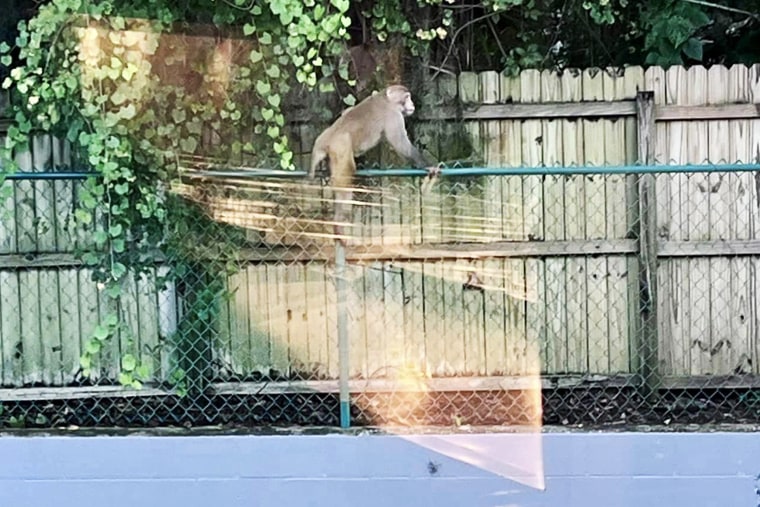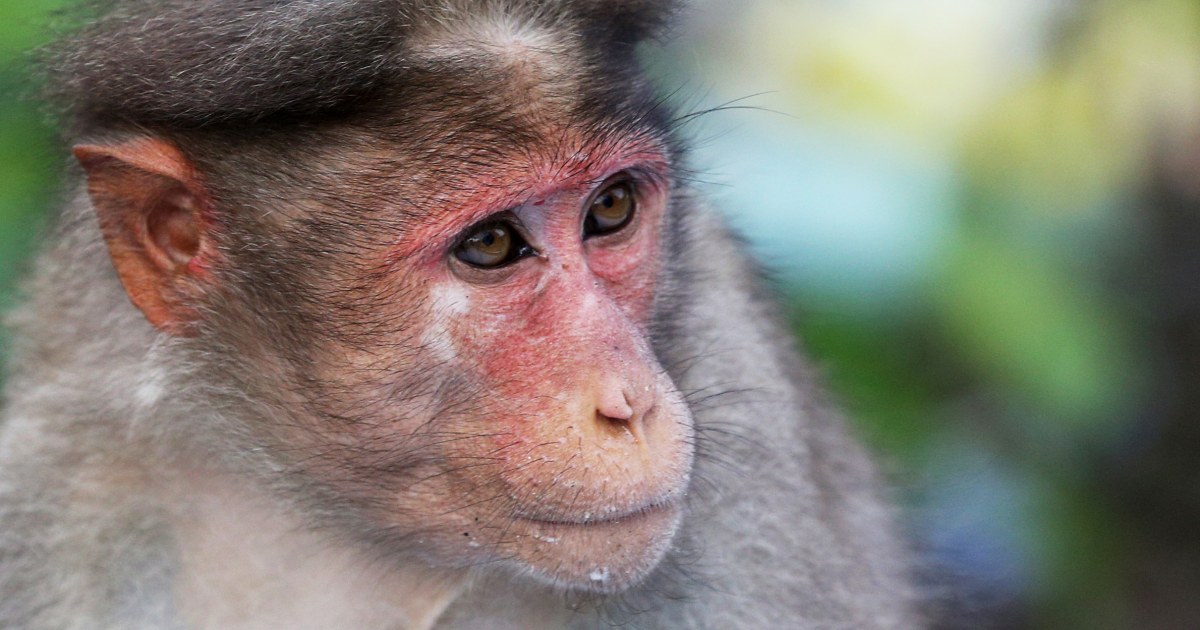Officials in Florida are warning residents to keep their distance from wild monkeys that have been spotted around the city.
Residents of Orange City, about 30 miles north of Orlando, have reported multiple sightings of wild monkeys within the city, the Orange City Police Department said in a Facebook post Wednesday.
The department said at least one of those monkeys was later identified as a Rhesus macaque monkey, a species that is native to Asia and can become aggressive when fed, according to the Florida Fish and Wildlife Conservation Commission.
Police warned locals not to feed or try to capture the monkeys and to report sightings to the commission’s Wildlife Alert Hotline.
Feeding wild monkeys in Florida is a second-degree misdemeanor punishable by up to 60 days in jail and a fine of up to $500, according to information from the commission that the police department shared on Facebook, which adds that feeding wild monkeys can increase the likelihood of attacks, injuries and the transmission of disease.
The Orange City Police Department did not immediately respond to questions Thursday morning about when, where or how many times the monkeys were reported seen.

Rhesus macaques are one of two species of wild monkeys — along with vervet monkeys — that are reproducing in Florida, according to the wildlife conservation commission.
The core population of Rhesus macaques have been spotted in central Florida, around the Silver River, where a boat operator first released six of the monkeys in the 1930s to attract tourists, the wildlife conservation commission said. Orange City is about 60 miles southeast of Silver River.
The monkeys have had negative impacts on the Sunshine State in prior years: in the 1970s, Rhesus macaques in the Florida Keys “destroyed red mangroves, leading to massive vegetation loss and shoreline erosion,” according to the wildlife commission.
Rhesus macaques in Florida have also tested positive for herpes B, a rare viral infection that can lead to severe brain damage or death if not treated quickly, according to the Centers for Disease Control and Prevention. There have been about 18 reported incidents of Rhesus macaques biting and scratching humans in Florida, but there haven’t been any confirmed cases of a human contracting herpes B from one of the monkeys in the wild, according to the wildlife commission.

